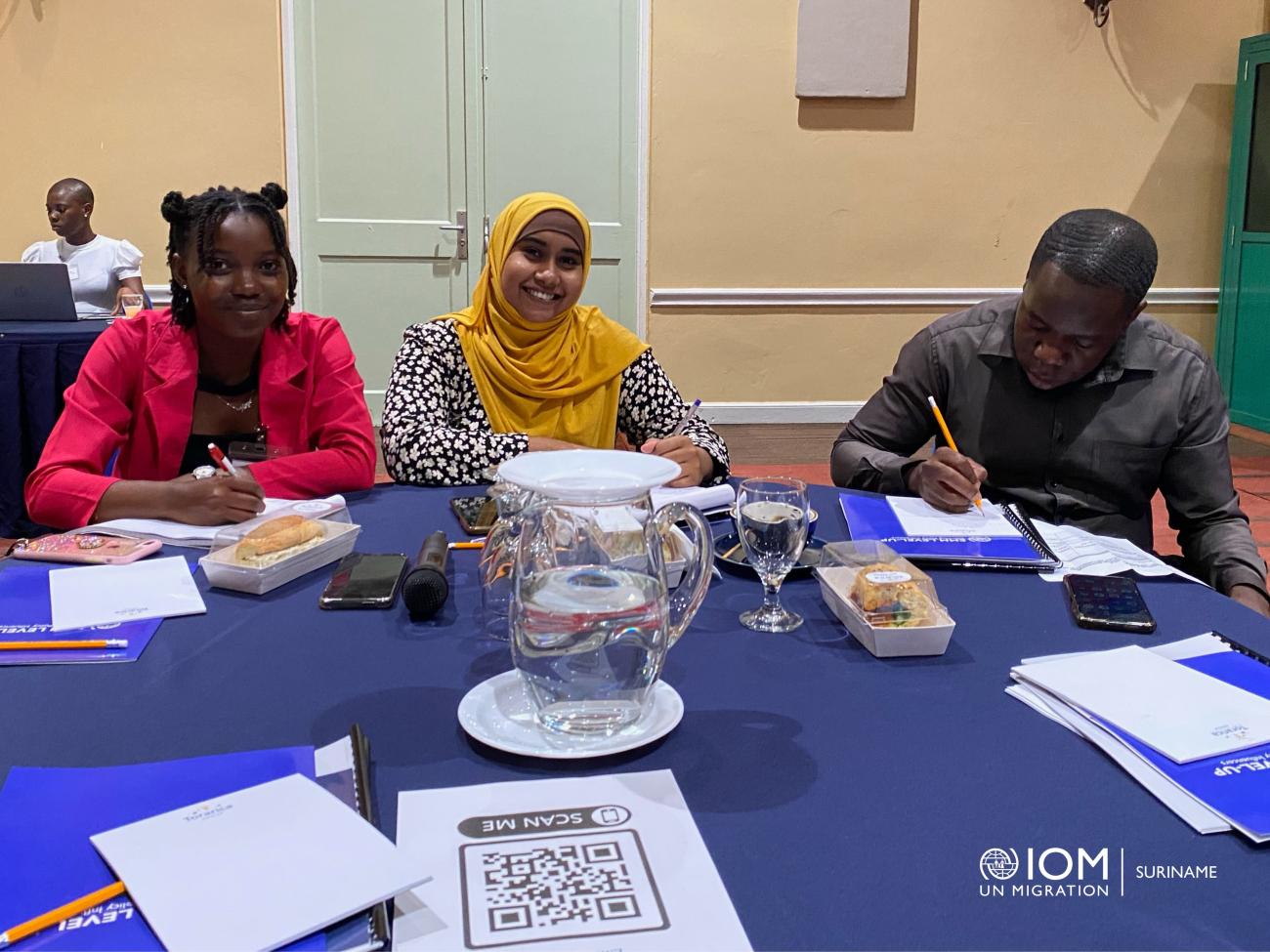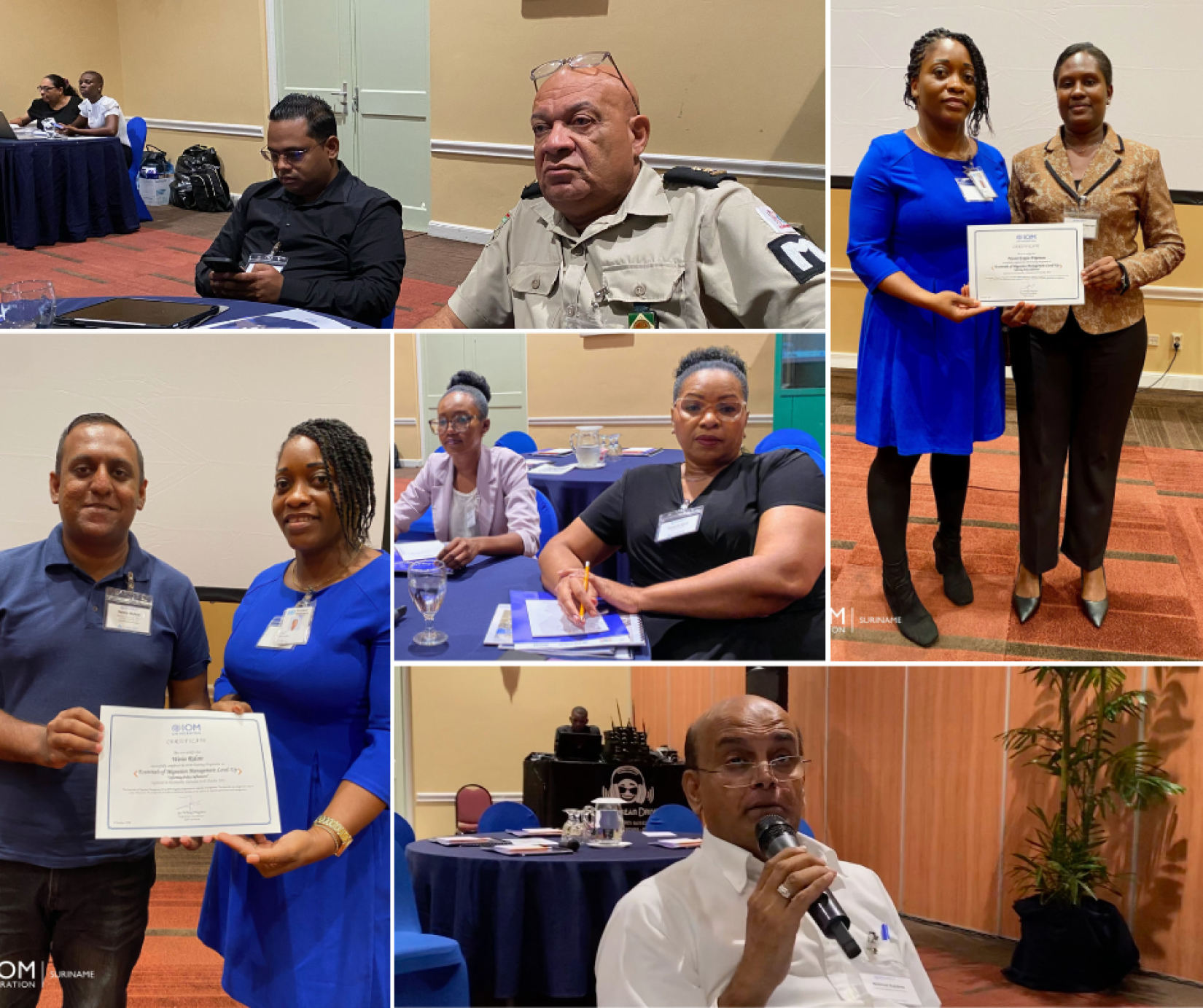IOM Suriname continues to build awareness about migration

Migration is everywhere in the global society and plays a large role in ethnically diverse Suriname.
In this context the Ministry of Foreign Affairs, International Business and International Cooperation of Suriname, having participated in previous sessions of the IOM's "Essentials of Migration Management" (EMM) training, made a formal request to the IOM to broaden the reach of the EMM Program to include policymakers. On 3 October, IOM Suriname responded and presented the EMM Level Up "Informing Policy Influencers" training in Royal Torarica. Eleven people from the government and private sector participated in the training. The knowledge gained is expected to help the participants to understand the various dimensions of migration, including how safe, orderly, and regular migration can be a tool for sustainable development in Suriname.

Several modules were taught at the training, including Migration Management and the Policy Cycle, International Migration Law and the Human Rights of Migrants, Communication on Migration, Regulation of Migration in conjunction with Border Management and Human Trafficking and Smuggling.
Jan-Willem Wegdam, IOM Suriname's Programme Coordinator noted that “In the complex world of migration, the International Organization for Migration (IOM) provides tools to governments, societies and migrants to promote safe, orderly and regular migration”.
Astrid Pavion, Liaison, policy, and capacity-building officer stressed the importance of a comprehensive migration governance for countries like Suriname. She cited Canada as an example. “A country like Canada does not stop migration. It has written its policies in such a way that it attracts people for the development of the country.”' Examples were also cited in the Caribbean region “In our neighboring country Guyana, there is a high demand for workers for the oil and gas sector.”
“There is a migration trend in Suriname of Venezuelans, Chinese, Cubans, Haitians and Indians” said Letitia Pinas, Head of the Trafficking in Persons (TiP) Department. In her module, she gave insights on the situation in the country. She managed to emphasize the difference between people who come to Suriname through human trafficking, which is a crime of exploitation, deception, and violation of human rights of the victims, and is different from regular migration, or smuggling of migrants.
The EMM training highlights the interaction between different thematic areas and builds a mutual understanding of migration for government and other stakeholders. It also leverages cooperation at national, regional, and global levels, while articulating the relevance of international frameworks, such as the Global Compact on Migration and the 2030 Sustainable Development Goals Agenda, on the day-to-day work of government officials and other stakeholders involved. The EMM “Informing Policy Influencers” training contributed to awareness about migration and promoted cooperation participation and integration of migrants.
The IOM office in Suriname will continue to build the capacity of the public and private sector to contribute to well-managed migration. In this way, the benefits of migration can be captured, and no-one be left behind in working together towards the achievement of Suriname’s development objectives and the global Sustainable Development Goals (SDGs).
***
For more information please contact: IOM Suriname Programme Coordinator: Jan-Willem Wegdam, jwegdam@iom.int


